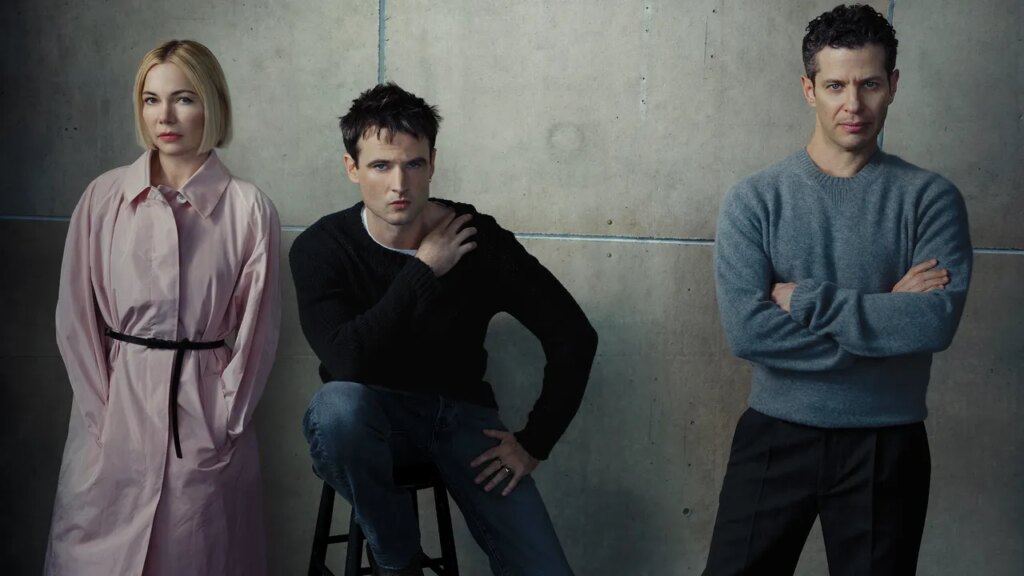The sea, in the plays of Eugene O’Neill, is never neutral: It is fate, peril, self-delusion, rebirth, truth. How fitting, then, that it is on a New York waterfront that I meet Michelle Williams, the star of a new production of Anna Christie that begins performances November 25 at St. Ann’s Warehouse in Brooklyn (opening night is December 11). We’re in a vast photo studio overlooking the Gowanus Canal, a place of coarse beauty and a setting that uncannily echoes the play’s watery, shrouded world: a rotgut saloon along the East River and a coal barge anchored in harbors in Provincetown and Boston—liminal spaces of fog, tides, grit.
Williams settles onto a sofa—poised, sincere, thoughtful—as barges, silos, and cranes loom through the enormous studio windows. One of the most versatile and acclaimed actresses working today, she has built her career inhabiting complicated yet indomitable women, and she chooses her roles by instinct. “It’s a response that is totally inarticulate and flies out of my body and attaches itself to the work like a harpoon,” she says. “And then, all of a sudden, I’m going in that direction, whether I really want to or not.” Lately, that pull has been toward Anna Christie—an underappreciated, slyly funny, stealthily feminist work by America’s greatest (and most tortured) playwright, which premiered on Broadway over a century ago. “The play has been scratching at the back door for a few years,” she says.
Williams and her husband, the director Thomas Kail—her collaborator on the series Fosse/Verdon—had been looking for a project to take on together (while staying mindful of the demands of raising young kids—the couple has three together). Theater appealed to Williams, who last appeared onstage in 2016 in Blackbird, earning her a Tony nomination, and she and Kail had long admired the adventurous spirit of the productions at St. Ann’s Warehouse—conveniently not far from their Brooklyn home. Anna Christie felt especially urgent to Williams. At a moment when women’s autonomy is under renewed pressure, the play was less of a choice and more of a calling.
Anna is a remarkable heroine: pragmatic, blunt, witty, and unapologetically herself, demanding to be seen and understood on her own terms. As a girl in Minnesota, after the death of her mother, she was abandoned by her father, a Swedish seaman named Chris Christopherson. Anna has been raised by relatives on a farm, endured abuse, and survived as a prostitute, facts O’Neill discloses gradually over the course of the play. At its start, she has come to New York, where her father is stationed, seeking reconciliation and also a sense of safety and home. When she falls in love with Mat Burke, an Irish stoker with a poetic soul—and an extremely combustible temper—their romance falters as illusions collapse under the weight of her past. Neither her father nor Burke can fully accept the reality of Anna’s life; their love for her is genuine, but their fixed ideas of womanhood collide with her clear-eyed realism.

